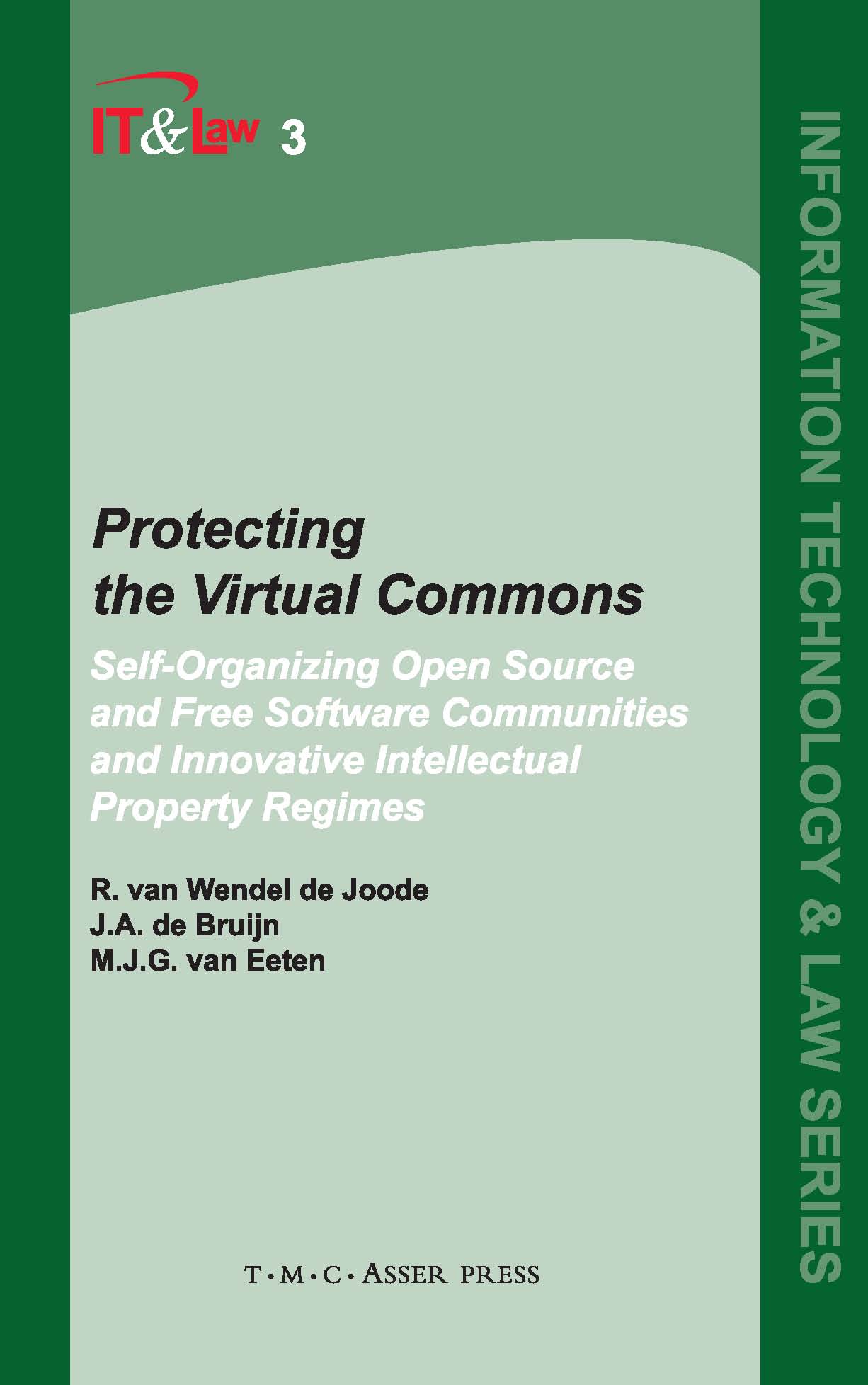Protecting the Virtual Commons - Self-Organizing Open Source and Free Software Communities and Innovative Intellectual Property Regimes
Information Technology and Law Series
2003
Authors:
R. Wendel de Joode: Technische Universiteit Delft, The Netherlands
J.A. Bruijn: Technische Universiteit Delft, The Netherlands
M.J.G. Eeten: Technische Universiteit Delft, The Netherlands
J.A. Bruijn: Technische Universiteit Delft, The Netherlands
M.J.G. Eeten: Technische Universiteit Delft, The Netherlands

Details
Formats:
ISBN:
978-90-6704-159-1